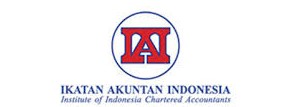Pengaruh Dimensi Fraud Triangle dan Penyalahgunaan Teknologi Informasi Terhadap Academic Fraud: Studi Empiris pada Mahasiswa Akuntansi Universitas Negeri Padang
Abstract
This research aims to empirically prove the influence of triangle fraud dimensions and misuse of information technology on academic fraud. This research was conducted on accounting students majoring in accounting class 2020 and 2021 at the Faculty of Economics and Business, Padang State University. Sampling was carried out using the proportional random sampling method. Data collection was carried out by distributing questionnaires via Google Form. The data analysis technique used to prove the truth of the hypothesis is multiple regression analysis (OLS), while hypothesis testing is carried out using the t-statistical test. Based on the results of hypothesis testing, it was found that the fraud triangle dimensions as measured by pressure, opportunity and rationalization had a positive effect on academic fraud committed by accounting students at the Faculty of Economics and Business, Padang State University, but misuse of information technology did not have a significant effect on academic fraud committed by accounting students. at the Faculty of Economics and Business, Padang State University
References
Astrina, F., Sabrina, N., Arifin, M. A., & Agustini, H. (2022). Pengaruh Dimensi Fraud Triangle Terhadap Kecurangan Akademik (Studi Kasus pada Mahasiswa FEB Universitas Muhammadiyah Palembang). Jurnal Media Wahana Ekonomika, 19(2), 257. https://doi.org/10.31851/jmwe.v19i2.8935
Budiman, N. A. (2018). Perilaku kecurangan akademik mahasiswa: Dimensi fraud diamond dan gone theory. Jurnal ilmu akuntansi, 11(1), 75-90.
Choo, F., & Tan, K. (2023a). Abrupt academic dishonesty: Pressure, opportunity, and deterrence. International Journal of Management Education, 21(2), 100815. https://doi.org/10.1016/j.ijme.2023.100815
Choo, F., & Tan, K. (2023b). Abrupt academic dishonesty: Pressure, opportunity, and deterrence. International Journal of Management Education, 21(2), 100815. https://doi.org/10.1016/j.ijme.2023.100815
Fitri, M., Nurhayani, U., & Sibarani, C. G. (2021). Pengaruh Pressure Terhadap Perilaku Kecurangan Akademik Pada Mahasiswa Fakultas Ekonomi Program Studi Pendidikan Akuntansi Universitas Negeri Medan. JAKPI-Jurnal Akuntansi, Keuangan & Perpajakan Indonesia, 9(1), 73-82.
Gultom, S. A., & Safrida, E. (2020). Analisis pengaruh fraud diamond dan gone theory terhadap academic fraud (studi kasus mahasiswa akuntansi se sumatera utara). EKSIS, 9(3), 113-124.
Hadijah, S. (2020). PENGARUH PENYALAHGUNAAN TEKNOLOGI INFORMASI DAN INTEGRITAS MAHASISWA TERHADAP PERILAKU KECURANGAN AKADEMIK MAHASISWA AKUNTANSI SEBAGAI CALON AKUNTAN. Journal of Economic, Public, and Accounting (JEPA), 2(2), 158-168.
Hoshibikari, S. B. Y., & Sukarno, A. (2020). Pengaruh fraud triangle terhadap kecurangan laporan keuangan pada perusahaan sub sektor properti dan real estate yang terdaftar di bursa efek indonesia (bei) periode 2015-2018. 1, 1–16.
Huang, S. Y., Lin, C. C., Chiu, A. A., & Yen, D. C. (2017). Fraud detection using fraud triangle risk factors. Information Systems Frontiers, 19(6), 1343–1356. https://doi.org/10.1007/s10796-016-9647-9
Ismatullah, I., & Eriswanto, E. (2016). Analisa Pengaruh Teori Gone Fraud terhadap Academic Fraud di Universitas Muhammadiyah Sukabumi. Riset Akuntansi dan Keuangan Indonesia, 1(2), 134-142.
Khan, I. U., Khalid, A., Hasnain, S. A., Ullah, S., & Ali, N. (2019). The Impact of Religiosity and Spirituality on Academic Dishonesty of Students in Pakistan. European Online Journal of Natural and Social Sciences, 8(3), 381–398. http://european-science.com/eojnss/article/view/5525
Melasari, R. (2019). Pengaruh motivasi belajar, penyalahgunaan teknologi informasi dan integrasi mahasiswa terhadap perilaku kecurangan akademik mahasiswa akuntansi sebagai calon akuntan (Studi pada mahasiswa akuntansi Universitas Islam Indragiri). Jurnal Akuntansi dan Keuangan, 8(1), 79-93.
Melati, I. N., Wilopo, R., & Hapsari, I. (2018). Analysis of the effect of fraud triangle dimensions, selfefficacy, and religiosity on academic fraud in accounting students. The Indonesian Accounting Review, 8(2), 187. https://doi.org/10.14414/tiar.v8i2.1536
Neva, S., Amyar, F., & Hernusa, H. L. (2021). Pengaruh Fraud Diamond dan Gone theory Terhadap Academic Fraud. JAS-PT (Jurnal Analisis Sistem Pendidikan Tinggi Indonesia), 5(1), 29-38.
Nurkhin, A., & Fachrurrozie, F. (2018). Analisis Pengaruh Dimensi Fraud Diamond Terhadap Perilaku Kecurangan Akademik Mahasiswa Pendidikan Akuntansi UNNES. Liabilities (Jurnal Pendidikan Akuntansi), 1(1), 1-12.
Park, S. (2020). Goal contents as predictors of academic cheating in college students. Ethics & Behavior, 30(8), 628-639.
Puspitaningrum, M. T., Taufiq, E., & Wijaya, S. Y. (2019). Pengaruh Fraud Triangle Sebagai Prediktor Kecurangan. Jurnal Bisnis Dan Akuntansi, 21(1), 77–88.
Said, J., Alam, M. M., Karim, Z. A., & Johari, R. J. (2018). Integrating religiosity into fraud triangle theory: findings on Malaysian police officers. Journal of Criminological Research, Policy and Practice, 4(2), 111–123. https://doi.org/10.1108/JCRPP-09-2017-0027
Saldina, M. F. (2021). Analisis Pengaruh Fraud Triangle Terhadap Perilaku Kecurangan Akademik Mahasiswa Akuntansi Dengan Self Efficacy Sebagai Variabel Moderasi. COMPETITIVE Jurnal Akuntansi dan Keuangan, 5(1), 194-204.
Vučković, D., Peković, S., Blečić, M., & Đoković, R. (2020). Attitudes towards cheating behavior during assessing students᾽ performance: student and teacher perspectives. International Journal for Educational Integrity, 16, 1-28.
Wahidin, A. N., Asse, A., Bulutoding, L., & Syariati, N. E. (2021). Pengaruh Dimensi Fraud Triangle Terhadap Perilaku Kecurangan Akademik Dengan Akhlak Sebagai Variabel Moderasi Pada Mahasiswa Akuntansi Uin Alauddin Makassar. ISAFIR: Islamic Accounting and Finance Review, 2(1), 1–20. https://doi.org/10.24252/isafir.v2i1.20194







.png)
.png)
